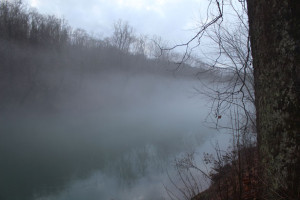When I started writing my novel, I already had an idea for an ending. It seemed to be the perfect conclusion after what I now realise was a simplistic plot. I had written a short story that was to form the basis for the novel. This was fantastic because I already had a sense of the storyline, but not so great in as much as it was limiting in times when I tried to too closely adhere to that original story. A short story made into a longer story does not make a novel unless other storylines can be brought into play, unless further complexity can be added to the mix.
Here’s the final paragraph from the short story:
 On the edge of the Vltava River, I have my first kiss. I cling to Gorge and for a moment, pretend like none of this is happening. I climb into the boat and look one last time at the village that had become my home. I leave no trace, save the invisible mark on Gorge’s heart. I will be left without record, transformed into a monster. I will be the witch to my vampire princess. Gorge squeezes my hand. My heart skips a beat and I am swept away by the river.
On the edge of the Vltava River, I have my first kiss. I cling to Gorge and for a moment, pretend like none of this is happening. I climb into the boat and look one last time at the village that had become my home. I leave no trace, save the invisible mark on Gorge’s heart. I will be left without record, transformed into a monster. I will be the witch to my vampire princess. Gorge squeezes my hand. My heart skips a beat and I am swept away by the river.
The whole way through writing, I thought I was working toward this ending. In fact, the best thing about this ending was that it gave me something to write towards. But through the process of writing, of introducing new twists and turns, of getting to know the characters on a deeper level, the ending changed. And as the ending changed, so too did the story itself.
It took some courage to break away from my original short story, this story was closer to historical fact than the novel has become. I was able to bring in elements of fantasy to sit alongside historical fact.
Now that I have completed the first draft, I am still not sure that the ending I have written will remain in the final novel. Who knows what might yet be revealed through the re-working stages!
 Completing my first draft seems an apt time to pause for reflection:
Completing my first draft seems an apt time to pause for reflection:
What have I done and what have I learnt:
- It helps to have a routine: writing in the morning usually works best for me. I spend the morning writing and then go onto paid work. If I switch these tasks around, I find my mind is too full of work stuff to really get into the narrative of my own writing.
- It took a long time to ‘get into’ writing the novel seriously. I used goal setting, plotting, concept writing, and characterisation to help me find a way into the writing.
- I spent quite some time writing episodically rather than chronologically. This was part of my discovering the story and was valuable in finding new inspiration, however, once I began to firm up the plot, I found I had to go back over these ‘episodes’ and leave clues or remove bits where I had given too much away.
- Writing is much easier when you have a plot: once I had the basic plotline outlined, I could then identify gaps and begin writing in a more chronological way. This made things like character development much easier.
- Writing the novel has made me a more disciplined and organised writer. Setting up this website and blogging each week has been part of this. The blog prompted me to keep working on my novel, the novel in turn prompted the writing of the blog. This is exactly what I hoped having a blog would do.
- While I have been writing, I have also been reading – about the process of writing and editing, finding an agent, writing a synopsis, the pros and cons of traditional versus electronic publishing, etc.
- I used writing activities to prompt my writing. I have been putting together a book of writing exercises as I have gone along, some of these have been included in part in my blogs.
- I have had several things published this year too: an essay, a short story, a poem; and continue to send other short works out to journals and literary magazines for hopeful publication.
- I continue to read, having read a number of books, both for pleasure and for analysis, and have blogged about some of this.
- I researched Bohemia through the 16 and 1700s, and witch trials that raged through Europe. I have even learnt about some herbal remedies and bizarre medical practices. I amassed a great quantity of research and devised ways to keep this organised.
- I completed my Master of Arts in Professional Writing.
- I learnt a lot about the power, form and theory of fairytales, incorporating this kind of writing in my novel.
- I have learnt a lot more about technical aspects of writing: point of view, adverbs and adjectives, tense, building tension, writing dialogue, genre, and research.
- I have written in episodes, snippets, rhizomes, fragments, and poems on scraps of paper, in messages sent to myself, on the back of receipts, in notebooks, on the computer, in letters to friends.
I have just about finished reading and working through Louise Doughty’s ‘A Novel in a Year’, and am immensely thankful for the knowledge I learnt and the discipline it helped me foster. I chose this book earlier this year to help me develop the habit of regularly working on the novel with the aim of having something completed within 12 months. I think it has taken me around 6 months to get to this stage, not having really begun writing until February. I am behind in the schedule I set myself – I was hoping to complete the first draft by the end of June. Considering I didn’t being in January, and that I took a month off to travel during that time, I guess I’m doing ok.
I am about to begin reading Jim Denney’s ‘Writing in Overdrive’. I don’t really know much about it, but his aim is to teach ways to ‘Write faster. Write freely. Write brilliantly’ – so I have high hopes!
There is still much to be done, but I’m giving myself a few days off from the novel. Next week, I will start revising and rewriting. I am really looking forward to this part of the journey, though I think it is where the hard work really begins!
We are all at different stages in our writing journey. What are you working on? Where are you at in your accomplishing your goals?
Photo credit: Fog on River
Photo credit: Feet Reflection



